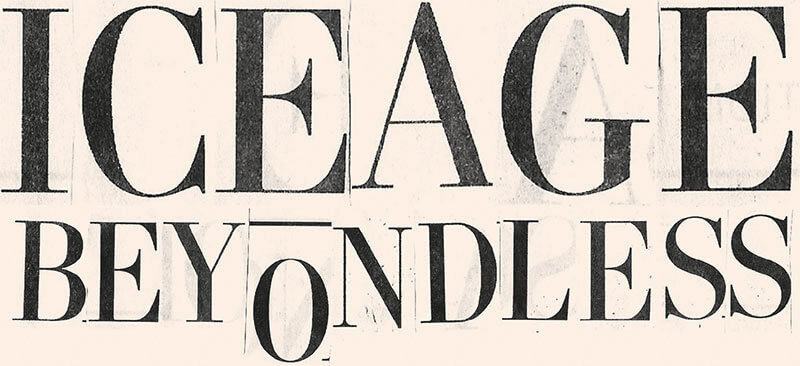
c/o iceagecopenhagen.eu
Beyondless is the fourth studio album from Danish punk band Iceage. Few bands have the power that Iceage has to suck in a listener into their wildly cacophonous noise. Beyondless is infectious for being paradoxically discordant and harmonious at the same time.
On first listen, Iceage is unpredictable and it is impossible to stop listening. Each component sounds remarkably messy. Singer Elias Bender Rønnenfelt is not easily understood and his vocals can sound as if they were recorded drunk at times. Rønnenfelt’s lyrics are less important than how his words create an atmosphere, an atmosphere that is always dark. There are several other layers that don’t seem like they would fit together yet gel quite well. The guitars are muddy and messy, the brass instruments sound straight out of New Orleans, and the drums are methodical and driving. The first listening experience is disorienting and beautiful.
On a second listen, some songs start to get old. Some of the simplistic guitar riffs (which are necessary to compliment the multitude of instruments) feel repetitive and stale. The album loses its unpredictability after one listen and some tracks like “Pain Killer” and “Thieves like us” lose their magic and sound like a drunken band from a saloon in the 1800s. That aesthetic can get tedious fast.
But some tracks feel dangerous and unpredictable long after the first encounter. “Catch it” could play on repeat for hours and I wouldn’t complain. There are numerous instruments and layers such that there is always something to focus on each subsequent listen. There are moments of satisfying harmony put next to seeming randomness. Though it makes no sense, I could swear that Rønnenfelt’s vocals were syncopated from the rhythm of the drums, but listening closer, I found that he was singing perfectly in tempo. This is perhaps Iceage’s greatest strength on the record. They can be perfectly in tune and tempo, but sound completely disorderly.
Another track on the album, “Take it all,” layers drums, guitar, brass, and violins to make a rich world of sound. Rønnenfelt comes on top of all of this with legato, ambling singing. Like “Catch it,” this track is easy to listen to more than once. “Take it all” is more like a ballad, however—an epic moment on the album.
It’s hard to place the musical influences of the band for this album. There is obviously a punk inspiration in the DIY aesthetic of the sound. The vocals and messiness of the instruments also reflect their punk rock roots. But there is a catchiness and repetition reminiscent of pop. Some of the guitar riffs sound like an old rock band. Other times the guitars powerfully drive in a direction more akin to grunge. The brass elements on the album are jazzy and reminiscent of Neutral Milk Hotel. The most glorious moments on the album are when it sounds like a darker rendition of In the Aeroplane Over the Sea.
The greatest take away from Beyondless is the beauty created in disorder. Modern songs are often clean. The recording is pristine, and the band doesn’t make a single mistake. Live performances are often more engaging because the audience is reminded that humans are behind the music. Every instrumental trip-up or voice crack reminds us that the musicians are real people rather than automatons programmed to play music. Because of this, the moments in live music where everything comes together perfectly are much more powerful.
Iceage takes this to the extreme. All the sloppiness on the record is meant to be there. It’s easy to see where every element in the music was put together. The instruments are messy and the vocals are all over the place, but the music is so gripping because everything keeps coming together. Iceage achieves some moments—amid the dirty, messy cacophony—that are truly beautiful.
Connor Aberle can be reached at caberle@wesleyan.edu.
Comments are closed